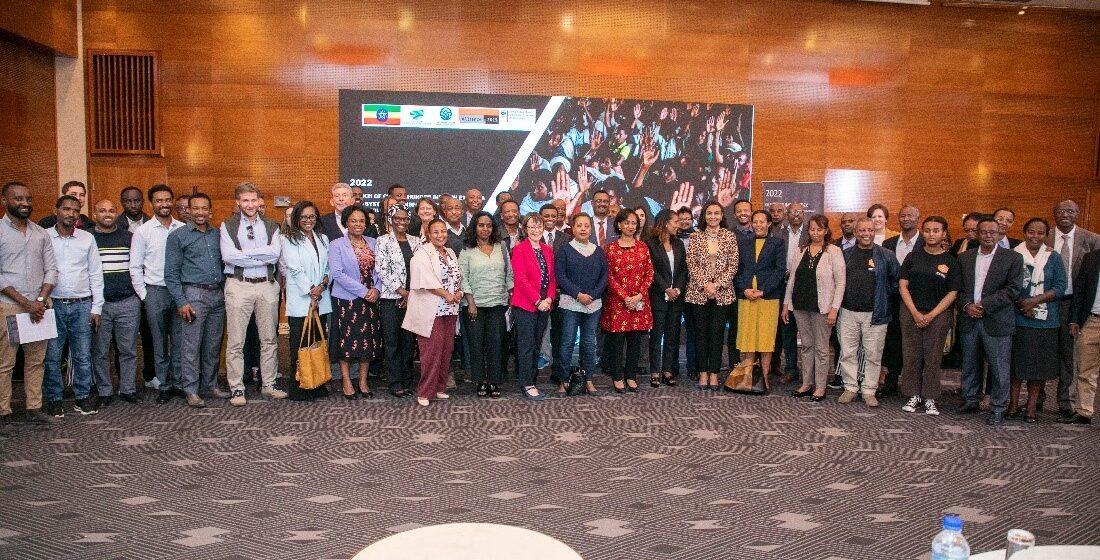In Ethiopia, the annual launch of the Global Hunger Index (GHI) report has evolved into a pivotal platform for advocacy efforts, particularly in recent years. Notably, Alliance2015 has adeptly harnessed the GHI launch as a central element of its advocacy strategy focused on food systems and nutrition in the country.

By strategically collaborating with the Ethiopian government, the GHI public launches have taken on added significance through joint co-hosting by the Ministry of Agriculture (MoA) and the Ministry of Health (MoH). These ministries, pivotal in shaping the national food system and nutritional landscape, have converged efforts to ensure a comprehensive approach to the issues raised by the GHI.
The synergic launch setting has facilitated the convergence of high-level officials, experts, donors and development practitioners, fostering constructive dialogues on the twin challenges of hunger eradication and food system transformation.
This collaborative endeavour has been instrumental in furnishing evidence-based insights, game-changing examples, and actionable recommendations. These contributions empower the government, Civil Society Organizations (CSOs), and development partners in their policy formulation and implementation processes.
By weaving the global insights from the GHI report into the national context, members of Alliance2015 have thoughtfully curated and disseminated context-specific policy briefs, enhancing the nation’s food system trajectory. Notably, this inclusivity extends to local CSOs, enabling them to share grassroots-level experiences and amplify their voices.

Key messages have resonated in this effort, encapsulating the crux of the endeavour:
1. “Building upon ongoing endeavours, substantial and long-term investments from both the government and development partners are imperative to fortify local governance and expedite the transformation of food systems. This drive should engender equitable, inclusive, and sustainable food systems capable of meeting the escalating demand for nourishment.”
2. “The transformation of food systems hinges on the collective participation of communities, civil society organizations, small-scale producers, farmers, and indigenous groups. By amalgamating their indigenous wisdom and interactions, these stakeholders should actively influence food governance. Central to this paradigm shift is the entrenchment of governmental accountability.”

This collective effort has yielded commendable results, with both the Ministry of Agriculture and the Ministry of Health integrating insights from the GHI report into their internal and external agendas.
Leveraging the momentum of the GHI launch, Alliance2015 has emerged as a proactive contributor to national-level dialogues concerning the trajectory of the country’s food systems. Impressively, Alliance2015 has taken on a leadership role as a co-chair of the national nutrition-sensitive agriculture platform, effectively advocating for the inclusion of local CSOs within this crucial body.
Furthermore, Alliance2015 has played a pivotal role in the expansion phase of the Seqota Declaration. This pioneering Ethiopian government’s initiative is dedicated to eliminating stunted growth among children below two years of age by 2030. Aligning seamlessly with the strategic objectives and initiatives of the Seqota Declaration, Alliance2015 members have spearheaded on-the-ground initiatives in the Seqota Declaration Expansion Woredas (Ethiopian districts, the administrative units closest to rural communities).
This engagement has culminated in strategic partnerships with the government, the European Union (EU), the International Livestock Research Institute (ILRI), and other stakeholders.

In sum, the GHI launch event has transformed into a catalyst for advocacy in Ethiopia.
This collaborative effort, expertly orchestrated by Alliance2015, has not only integrated global insights into the nation’s context but has also galvanized various stakeholders to proactively engage in transformative dialogues and practical initiatives.


